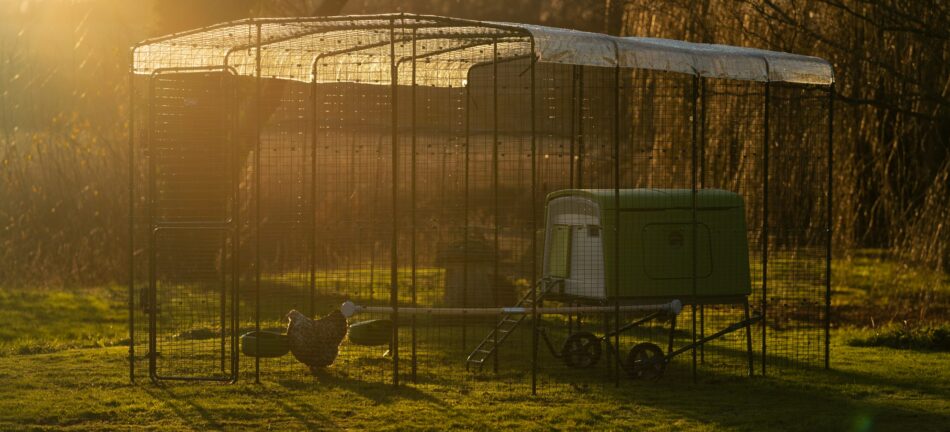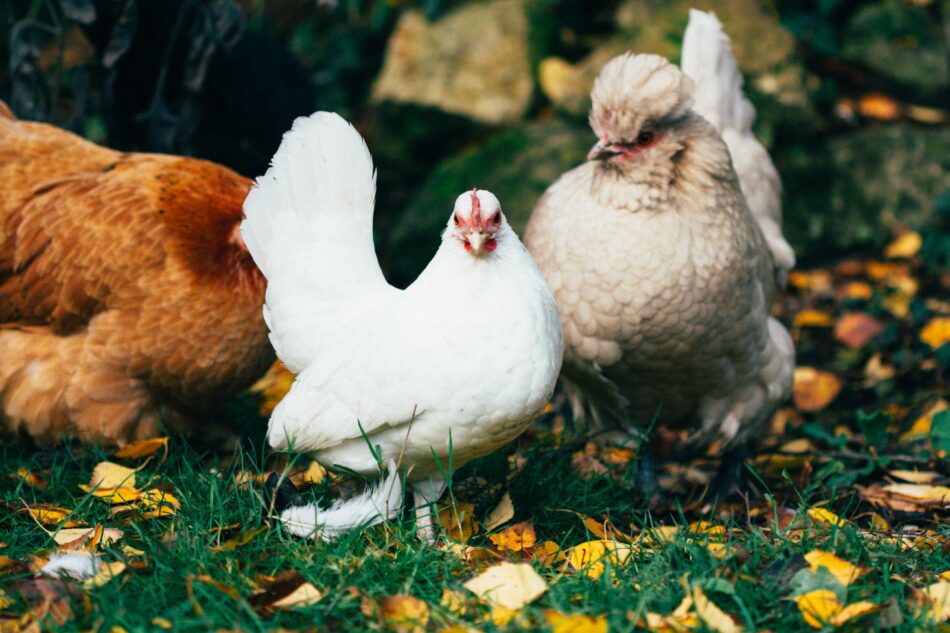The best chicken breeds for fall
There are many references to spring and chickens, but hens are not exclusive to just one season. In fact, there are some breeds of chickens that prefer fall and its cooler temperatures. But, no matter if you have spring chickens or a fall flock, we’ve got the products to keep your hens happy all year long.
Should you get chickens in fall?
Fall and spring have a lot in common: moderate temperatures, change in the amounts of daylight and vegetation, and a great opportunity to try something new. Because of these ideal conditions, fall is an excellent time to consider getting chickens. Here are some reasons why fall may actually be better than spring for adding chickens to your backyard or existing flock:
- Cooler temperatures mean less stress for hens
- Shorter days encourage hens to learn their roost and wake routines quickly
- Less vegetation means more treats and opportunities for you to bond with your new hens
There’s also shorter, less dense grass in the fall — giving you the perfect opportunity to practice maneuvering your chicken tractor or to position your chicken coop. You may also want to consider raising chicks in the fall over the spring for the same reasons.
Why do some chicken breeds do better in fall?
What makes one breed of hen better than the next when it comes to seasonal changes and cooler temperatures? Hens have advantages that are displayed in the way they are built that will clue you in as to how likely they are to be a fan of fall. Their feathering, size, and even their combs and wattles are good indicators of if your hen is hardy in autumn.
Since chickens release heat through their combs and wattles, breeds with larger head adornments tend to do best in the heat. Conversely, hens with smaller combs and wattles are less likely to experience frostbite in the winter. Lean chickens fare better in the heat, and heavy hens weather the winter with ease. And so, in order to have a well-rounded chicken that will best tolerate the changing of the seasons, a balance must be found.
We’ve outlined some breeds of chickens that thrive in fall because of their general hardiness in all temperatures. Not all chicken keepers will experience cold temperatures during autumn, just like not all flocks are frozen in fall. The best hens to keep in the fall are those that are both cold and heat-tolerant.
Plymouth Rocks
Plymouth Rock chickens are known for their hardiness in most temperatures. They have moderate-sized combs and while they’re considered a heavy breed, they aren’t oversized. Plymouth Rocks are excellent layers of large brown eggs, and have a long lifespan of up to 10-12 years. Plymouth Rocks are typically “barred”, meaning their feathers are striped in pattern. Their black and white coloring will make them easy to spot among the fall foliage.
Possibly the most popular breed of chicken, Rhode Island Reds are hardy in just about every climate. They’re a dual-purpose breed (bred for both meat and eggs) but aren’t as heavy as hens bred exclusively for meat. They have moderate-sized combs and wattles, and are excellent layers of brown eggs. Rhode Island Reds are active, making them great choices for fall insect control.
Brahmas
They may be large, but Brahmas are surprisingly adaptable to both hot and cold climates. Their dense feathers keep them warm in cooler temperatures, and as long as they have access to cool water and shade, they will fare just fine as the weather warms up. Their legs are well protected by their feathers, but it’s important not to let them stand in mud — it can cake in their fluffy feet and lead to soreness. Due to their size, Brahmas won’t hop your garden fence to sample your autumn harvest.
Australorps
Australorps are essentially smaller versions of Orpingtons, but with just as impressive laying ability, with the world record of 364 eggs in 365 days being set by an Australorp hen. In addition to their prolific egg-laying, they are both heat and cold-hardy, adjusting to each season with ease. Their unique “beetle black” coloring sports a green hue when their feathers are fresh from their fall molting cycle.
Easter Eggers
Not an officially recognized breed, Easter Eggers are the result of crossing an Araucana and any other breed of chicken that lays brown eggs. The result is a rainbow of possibilities for eggshell color: from blue, green, and even pink-colored eggs. Because they can vary widely in appearance and build, Easter Eggers that are best suited to all seasons are of medium build with small or medium-sized wattles and combs. That being said, hybrid breeds are known for their health and hardiness — making them an excellent choice to start with in the fall.
Orpingtons
Orpingtons are generally recognized as a cold-hardy breed, but in recent years have gained a reputation for being tolerant of most weather. They may be on the heavier side, but their large combs and wattles help disperse heat to keep them cool in the summer months. Their head adornments may need some Vaseline in the winter to keep them from becoming frostbitten, but since Orpingtons are known as the “lapdogs” of chicken breeds, it should be an easy task. Their rich colors are a perfect complement to a fall palette.
Flock-raising in the fall
Regardless of breed, all chickens need a sturdy, comfortable home to thrive in the fall. The cooler temperatures, changes in vegetation, and shorter days all affect how your hens feel and behave. During this particular change in the seasons, you may be wondering how chicken keepers can prepare for fall. Some things to keep in mind are:
- Shorter days mean earlier roost times, so be sure to feed your flock earlier and adjust your automatic chicken coop door schedule accordingly.
- Provide supplemental chicken treats and extra chicken scratch to help your hens through their fall molting cycle and the falling temperatures.
- Give your flock chicken toys to keep them active and entertained in the absence of fresh grass and insects.
Preparing your chickens for fall can be an enjoyable task when you have the right setup. An easy-to-clean chicken coop goes a long way in helping to prepare for autumn, allowing you to get it fresh and clean for the new season with minimal time and effort.
Chickens scratching through your freshly raked leaf piles? Chicken fencing is a fast and easy solution to keeping your flocks from reaching certain areas. Omlet’s chicken fencing comes in multiple lengths, and can be arranged in any shape you desire. And, when the seasons change once again, the poles are easy to pick up and move to create a new area for your hens.
Omlet and your fall flock
Omlet supplies chicken keepers all over the world with products that not only last through the seasons, but provide ultimate support and comfort to chickens and their raisers. Our Eglu Cube chicken coop, chicken toys, and chicken fencing will meet all of your hens’ needs this fall – and make this season, and every season, the best experience with your flock.
This entry was posted in Chickens


